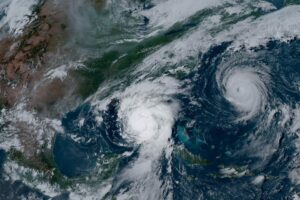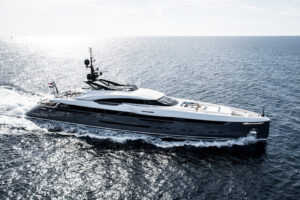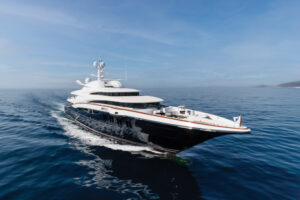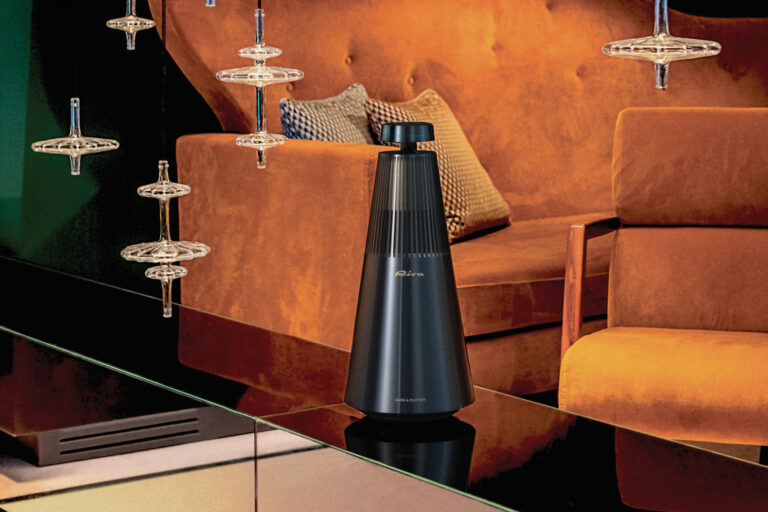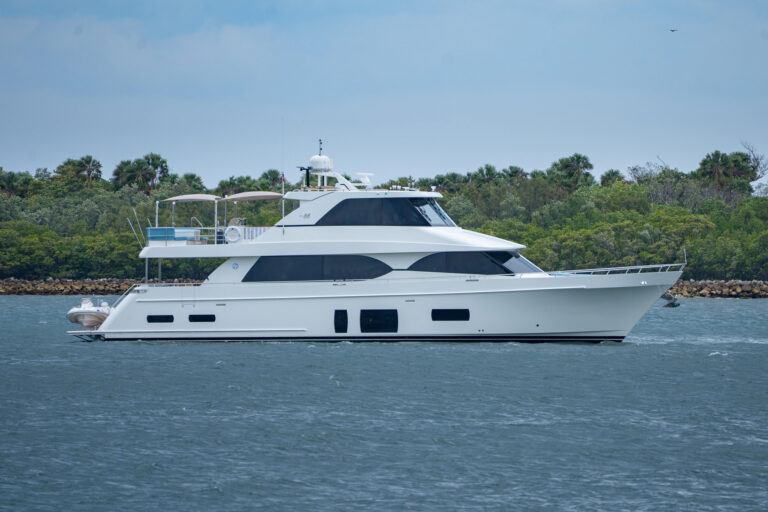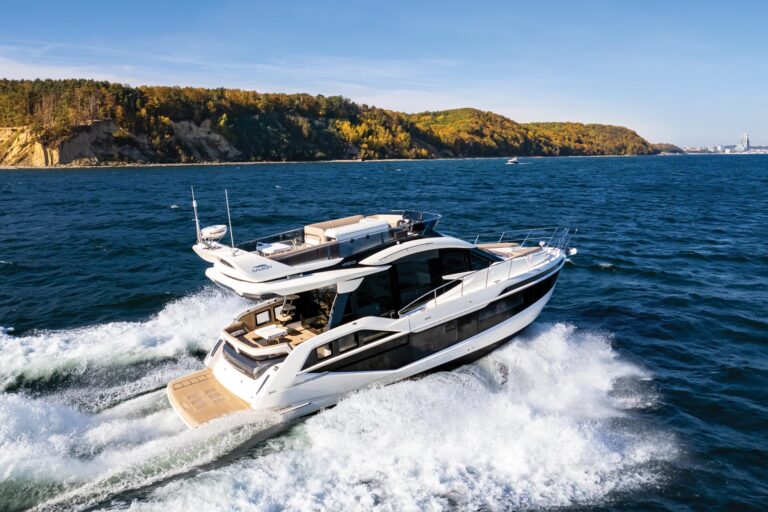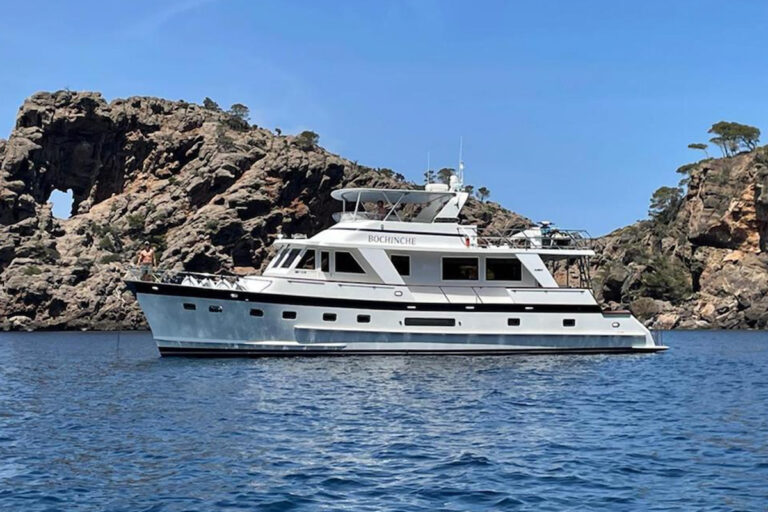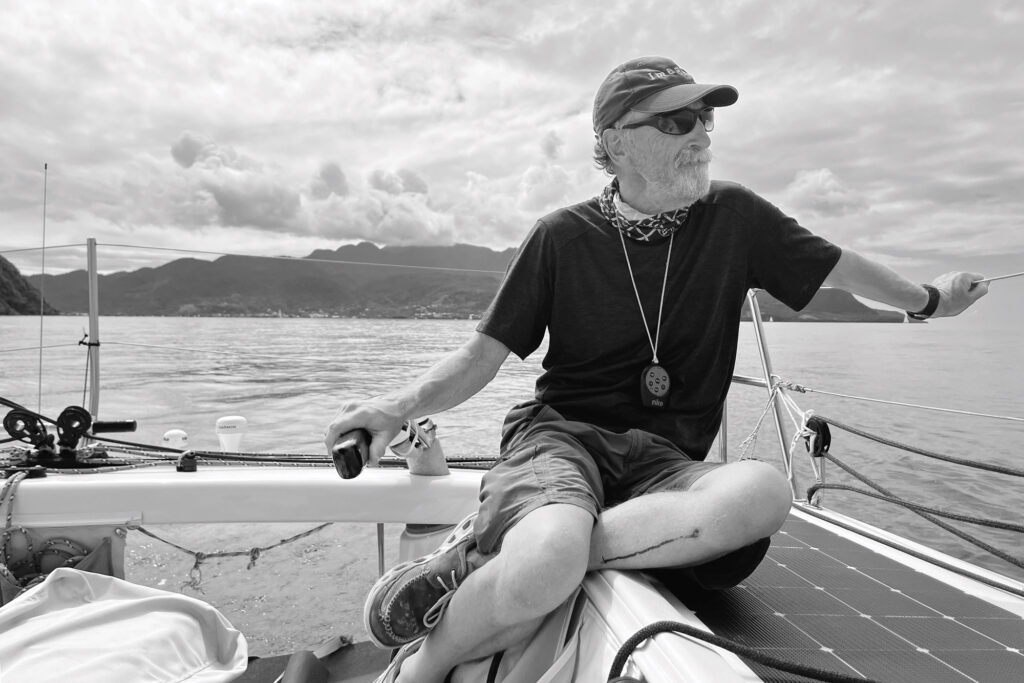
The fastest-growing segment of inshore and offshore yacht racing is the doublehanded division. This makes a lot of sense. For a fully crewed offshore race, you need to recruit, feed, transport and accommodate a small platoon of skilled sailors, a task that’s just as costly and complicated as it sounds. For a doublehanded contest, you grab a good, trusted mate, and you set sail. Clean and simple.
In recent years, the Newport Bermuda Race added a doublehanded class; in the 2024 edition, it attracted a respectable fleet of 14 entrants. Doublehanded sailing is even more popular across the Atlantic. In 2023, the Fastnet Race—which begins in England, rounds Fastnet Rock off the coast of Ireland, and concludes in France—drew a whopping 45 boats for the “two-handed” division. There’s no denying that it’s catching on.
I got my first taste of doublehanded racing a good two decades ago, sailing with stalwart American shorthanded sailor Steve Pettengill in the 2003 running of the Bermuda One-Two aboard his 50-foot Hunter’s Child II. The Bermuda One-Two, which starts and concludes in Newport, Rhode Island, is just that: one lone sailor down to Bermuda, two crew on the way back.
Sailing “two up” offshore is kind of a weird deal: You essentially race solo for long stretches while the off-watch sailor snatches some sleep, and you generally only cross paths for quick meals and sail changes. I recall two things vividly about that experience: a nasty northerly in the Gulf Stream and staggering ashore utterly spent.
Last spring, however, I had another go at doublehanded racing, and it was a far more pleasant experience. On the lush Caribbean island of Dominica, I paid a visit to participate in the weeklong PAYS Dominica Yachting Festival to benefit the local “boat boys” who run the Portsmouth Association of Yacht Services. The midweek highlight was the Race to Mero, a quite informal, roughly 12-mile contest from Portsmouth’s Prince Rupert Bay to Mero Beach on day one, and a return race to Portsmouth the next day.
Peter Bourke was cruising the islands singlehanded aboard his cool Class 40 yacht, Illusion, and needed a crewman for the laid-back event. I was more than happy to hop aboard.
Read More from Herb McCormick: Ireland’s Wicklow Sailing Club is Warm and Welcoming
This wasn’t exactly the America’s Cup; there was no starting line or finish line, and you could motor for the first five minutes while getting off the mooring and raising the sails. The six-boat fleet got underway in a zephyr of a breeze, which eventually filled in from the south. Sliding down the pretty west coast of Dominica was pleasant. Following a delightful sail (we finished midfleet), the beach party was loud and raucous. Good times.
We were greeted with a northerly the next morning. It actually filled in pretty sweetly as the day progressed, and Illusion lit up in these ideal conditions. Meanwhile, a few skippers decided not to bash upwind. They instead kicked their engines over. A few had done the same the day before. This time, Illusion was at the front of the pack back in Prince Rupert Bay.
The awards ceremony that evening, with a five-piece band and a tasty barbecue, was fantastic. And at the end of it, there was a pleasant surprise. By virtue of the fact that Illusion had completed both legs entirely under sail—and was the only entrant to do so—we were named the winner. Peter was ecstatic. The whole thing had been a hoot.
After that initial doublehanded ordeal in the Bermuda One-Two, I wasn’t all that keen to try it again. But now, after my taste of victory in Dominica, this two-person racing has a whole new appeal.

